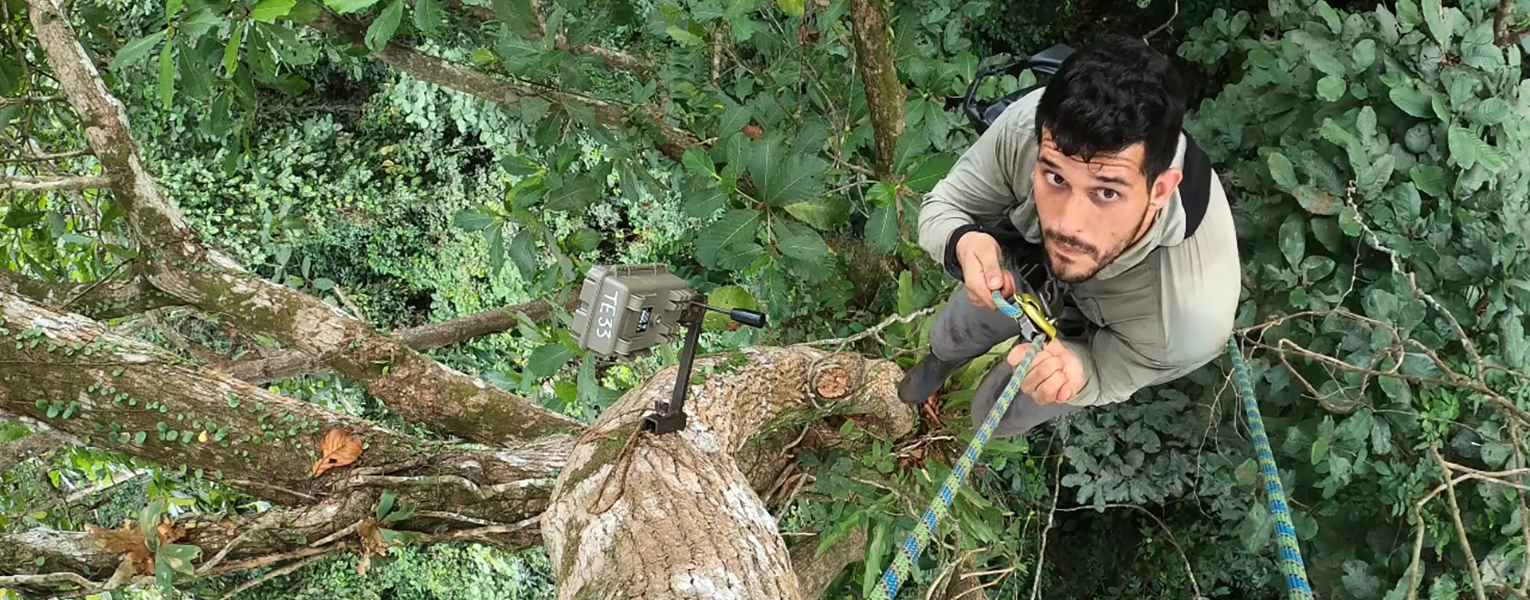06/22/2022
World Rainforest Day
FAU Researcher Studies Primates in the Heart of the African Rainforests
Bethany Augliere
The Congo Basin in Central Africa is home to the world’s second largest rainforest behind the Amazon of South America, and one FAU researcher is studying its unique primates.
“African rainforests are remarkable not only for their biodiversity and carbon storage, but because it is where you find gorillas, chimpanzees and bonobos — all but one of the living apes in our human family,” said Kate Detwiler, Ph.D., associate professor in the Dorothy F. Schmidt College of Arts & Letters.
The Congo rainforest, which spans six countries is known for high levels of biodiversity, including more than 600 tree species and 10,000 animal species, including forest elephants, gorillas, chimpanzees, leopards, hippos, and a unique group of monkey species that Detwiler studies, called the guenons.
Detwiler’s team was the first to capture video footage of an endangered guenon, the Dryas monkey, using remote camera traps of a newly discovered population in Lomami National Park in the Democratic Republic of Congo (DRC). “These simple devices, which use infrared beams to sense a change in temperature when a warm-bodied animal passes by and take a photo or video, have revolutionized how researchers and conservationists survey rare and elusive mammals,” said Daniel Alempijevic, a Ph.D. student in Detwiler’s lab who runs the Dryas camera-trapping project.
While the African rainforests are threatened due to deforestation, hunting of its wildlife and logging, Detwiler said these forests are not on peoples’ radar. She said she hopes her research on rainforest monkeys contributes to the overall knowledge of the tropical rainforest ecosystems, which provide critical local and global services — at the top of the list are clean air, water and carbon sequestration to mitigate climate change.
“Monkeys and other living primates are our closest relatives, and their survival depends on us,” Detwiler said. “We cannot protect what we don’t understand.”
If you would like more information, please contact us at dorcommunications@fau.edu.
